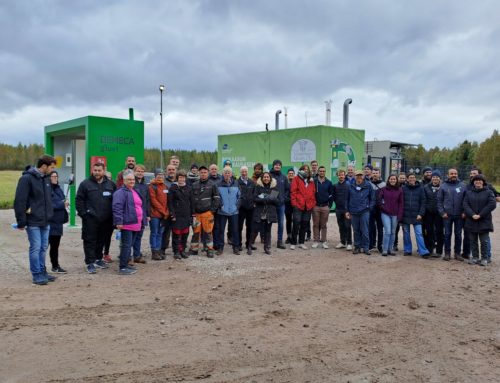COOPID: press release July 2021
COOPID launches its showcase visits series with a digital event to second-degree cooperative Oleícola El Tejar: transferring bioeconomy knowledge to primary producers.
After six months dedicated to the success stories selection and preparation, the COOPID project – an active H2020 project that works to develop knowledge transfer strategies to support the uptake of biobased business models across the EU primary sector – carried out an online visit to Oleícola El Tejar, a second-degree Spanish cooperative (a cooperative of cooperatives) that makes integral use of the by-products of olive grove, especially the wet pomace resulting from the oil mill industry. Currently, the cooperative is composed of almost 250 associated entities that process the olives of more than 80,000 farmers, who cultivate more than 400,000 ha. In other words, Oleícola El Tejar is an astounding example of a successful biobased business model.
During the visit (conducted online due to ongoing Covid-19 restrictions), Oleícola El Tejar transfered knowledge about the origin of its solutions and presented experiences regarding the production of olive pomace oil as well as about the obtention of a wide range of products from wet pomace and olive by-products, such as: bioenergy, biofertilizers, pulp for animal nutrition, natural bioproducts with high added value and even solid fuels – active valorisation lines that allow Oleícola El Tejar to “close the loop”.
Oleícola El Tejar also presented its business model, which has developed over the years in response to the needs and problems of the olive sector and of its almost 250 partner olive oil mills – main core members of Oleícola El Tejar, without them the existence of the cooperative would not be possible. Lastly, participants were able to see first-hand the installations of Oleícola El Tejar and share a rich discussion.
To sum up, Oleícola El Tejar’s commitment to adding value to olive grove by-products is currently a clear example of the Circular Bioeconomy, having also demonstrated a strong commitment to environmental conservation and protection. In total, around 50 people from 10 European countries participated in the visit, including some cluster members and 12 ambassadors. Among the visitors, the COOPID project was honoured to host in this occasion members of the Spanish Ministry of Agriculture, Fisheries and Food, and CDTI (Spanish Centre for the Development of Industrial Technology).
The visit was part of a first level of actions addressed directly to EU primary producers – one of the main knowledge transfer strategies of the COOPID project, the organisation of Success Story Showcase visits to identified successful business models. In total, COOPID is working on 4 levels of actions, which will be deployed through ad-hoc established networks of organisations active in the bioeconomy (COOPID Bioeconomy Clusters). Altogether, COOPID counts with 10 COOPID Bioeconomy Clusters from 10 European countries, involving a wide range of stakeholders: primary producers (cooperatives or associations within agriculture, forestry & aquaculture), industry, public sector, research and academia.
The visit to Oleícola El Tejar has been the first of many other Success Story Showcase Visits to come. Altogether, the projects’ main objective is to foster connections among the primary sector in Europe while showcasing practical recommendations for primary producers, policymakers, industry, and academia. The next visits are scheduled to begin in October 2021.
At Present, bioeconomy starts on the fields, yet meaningful participation of the primary sector is currently challenged. The COOPID project major goal is to address the main challenges the primary sector encounters when taking part in the “bioeconomy”. Coordinated by Cooperativas Agro-Alimentarias de España, COOPID proposes an innovative and effective strategy to inspire primary producers and stimulate the uptake of inclusive and sustainable bio-based business models in the European primary production sector, considering regional & sectorial particularities.
To see more details, visit the project website, the COOPID interactive platform and follow the project on social media (Twitter)
Contact point
Cooperativas Agro-Alimentarias de España (Spain)
- Juan Sagarna, Project Coordinator
- sagarna@agro-alimentarias.coop
- Susana Rivera, Project Manager
- rivera@agro-alimentarias.coop









